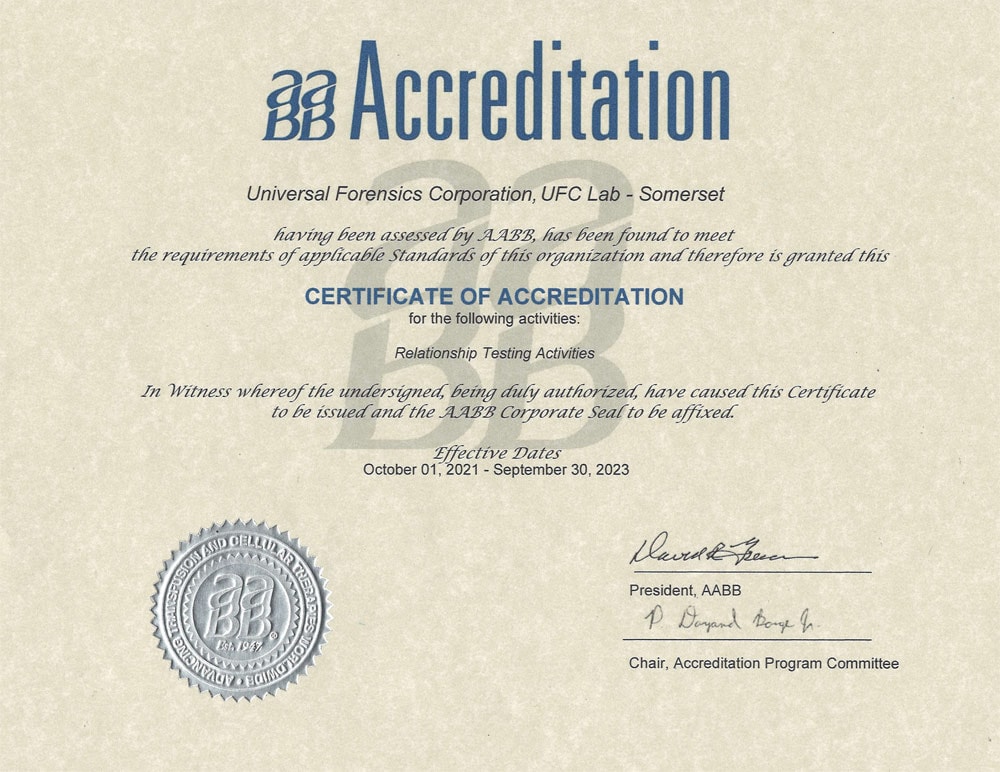How to Get a Paternity Test While Pregnant Safely

According to the CDC, there are almost 55 births for every 1,000 women in the United States aged 15 to 44.
Whether for personal reassurance, legal reasons, or health purposes, prenatal paternity testing offers reliable answers. If you’re considering this option, it’s essential to understand the safest methods.
Read on to learn about conducting a paternity test while pregnant and more.
Why Consider a Paternity Test While Pregnant?
Although there are many reasons to get the test done, some expectant mothers may want to confirm paternity early to establish peace of mind. Others may want to secure legal or financial responsibilities.
In certain situations, knowing the biological father’s medical history is crucial for genetic counseling or to assess potential health risks for the baby. Others may be preparing for custody arrangements or making decisions that could impact the child’s future.
Regardless of the reason, ensuring safety for both the mother and the unborn baby should remain the highest priority. Thanks to modern advances in genetic science, it is now possible to obtain accurate prenatal paternity results without putting the pregnancy at risk.
What Is a Non-Invasive Prenatal Paternity Test?
The safest way to perform paternity DNA testing during pregnancy is by choosing a non-invasive prenatal paternity test (NIPP). The method calls for a simple blood sample from the pregnant woman and a cheek swab from the potential father.
Using this approach, scientists can examine free-floating fetal DNA present in the mother’s bloodstream. From there, they can compare it to the father’s genetic material to determine biological relatedness.
The non-invasive prenatal paternity test boasts tremendous accuracy. Most importantly, this method eliminates the dangers associated with older, invasive procedures.
Outdated techniques required inserting a needle into the womb to extract samples and carried the risk of miscarriage or pregnancy complications. NIPP, in contrast, is risk-free for both the expectant mother and her developing baby.
What’s the Process Behind a Non-Invasive Prenatal Paternity Test?
The process of prenatal paternity testing is surprisingly simple and stress-free for the participants. The first step involves sample collection.
The pregnant woman will provide a small blood sample, typically drawn from her arm. Meanwhile, the potential father contributes a cheek swab to collect his DNA. The two samples offer enough genetic information to complete the analysis.
Once collected, the laboratory isolates the baby’s free-floating DNA found in the mother’s blood. Using sophisticated genetic testing technology, this fetal DNA is compared to the potential father’s sample to determine if there is a biological match.
After analysis, results are generally available within several business days, depending on the laboratory’s processing time. Providers such as ReliaLabTest deliver results that are:
- Accurate
- Prompt
- Confidential
Is Non-Invasive Prenatal Paternity Testing Safe?
A non-invasive prenatal paternity test is entirely safe for both the expectant mother and her unborn child. Since the procedure only involves a routine maternal blood draw and a harmless cheek swab from the potential father, there’s no direct contact with the pregnancy itself. Doing this eliminates any risk of:
- Injury
- Miscarriage
- Infection
The modern method keeps both the mother and the fetus completely safe. The availability of this non-invasive option has made prenatal paternity testing a much more attractive and stress-free choice for expectant parents seeking certainty during pregnancy.
Other Paternity Testing Options
If you are not currently pregnant, other paternity testing options are available. The most popular choice for post-birth paternity determination is the home paternity test.
A kit like this allows you to collect DNA samples using cheek swabs from both the child and the alleged father in the privacy of your own home. Once collected, send the samples to a certified laboratory for analysis.
Still, it’s important to remember that home paternity test kits are intended for use only after the child is born. You can’t use them during pregnancy because fetal DNA isn’t accessible outside the womb without specialized testing. For accurate prenatal paternity results, only the non-invasive prenatal paternity test is suitable.
Why Choose ReliaLabTest for Prenatal Paternity Testing?
When selecting a provider for paternity DNA testing, accuracy and safety should be at the forefront of your decision-making. ReliaLabTest is a leading provider that offers everything expectant parents need for reliable prenatal paternity testing.
ReliaLabTest ensures safe and non-invasive procedures designed to protect both mother and baby at every step of the process. Their state-of-the-art laboratories are fully certified and meet the highest industry standards to guarantee precise and accurate results.
Plus, the company prides itself on fast turnaround times, so clients aren’t left waiting anxiously for answers. Confidentiality is a top priority, and ReliaLabTest handles all client information and samples with the utmost care and discretion.
The experienced team at ReliaLabTest is always available to do the following:
- Guide clients through the process
- Address concerns
- Answer questions about paternity DNA testing
When Should You Consider Prenatal Paternity Testing?
The eighth week of pregnancy is the best time. Prior to this period, the mother’s bloodstream may not contain enough fetal DNA to conduct a reliable analysis.
Expectant mothers might seek prenatal paternity testing for several reasons.
Legal concerns are a common motivator, especially in cases involving:
- Child support
- Custody disputes
- Parental rights
For many, personal reassurance and peace of mind are the main reasons to pursue paternity clarity during pregnancy.
Can You Combine Prenatal Paternity Testing with Other Health Tests?
Yes, many expectant parents opt to undergo STD testing alongside paternity DNA testing.
It’s a wise choice, as testing for sexually transmitted infections during pregnancy is a crucial part of protecting both maternal and fetal health.
A Paternity Test While Pregnant Is Safe
It’s possible to get a paternity test while pregnant and not risk the safety of your baby.
ReliaLabTest is here to provide you with paternity testing and many other dependable testing services. From drug screening and alcohol screening to allergy tests to STD testing, you can always expect careful and accurate results. Our Nashville team is trained, certified, and able to accommodate groups for employment testing.
Don’t wait to ask the ReliaLabTest team any questions you may have, or stop by for a test today.








